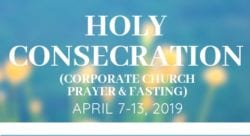Trust In the Lord
Written by Dr. DeShonda Bailey, JD, ThM
Lead Pastor
July 2, 2021
PSALM 118:1-8
1 O give thanks to the Lord, for He is good; For His lovingkindness endures forever.
2 Oh let Israel say, “His lovingkindness endures forever.”
3 Oh let the house of Aaron say, “His lovingkindness endures forever.”
4 Oh let those who [reverently] fear the Lord, say, “His lovingkindness endures forever.”
5 Out of my distress I called on the Lord; The Lord answered me and set me free.
6 The Lord is on my side; I will not fear. What can [mere] man do to me?
7 The Lord is on my side, He is among those who help me; Therefore I will look [in triumph] on those who hate me.
8 It is better to take refuge in the Lord Than to trust in man.
The Psalmist here, believed to be David, gives a reiteration of the Declaration that God’s Lovingkindness (Mercy) endures forever. First, he encourages the Nation of Israel – the Jewish nation / His chosen people (the congregation of His people) to make this declaration. Secondly, he encourages the Priests (the House of Aaron – Moses’ brother chosen to be the priestly tribe) to make this declaration. Finally, he encourages all who fear/revere the Lord (speaking of Gentile Converts) to make this declaration – That God’s Lovingkindness (Mercy) endures forever. One might ask why he is reiterating this; why is David having the people repeat this declaration? I believe that it is because when we reiterate a thing, it solidifies it in our psyche and in our heart. When we repeat something (a statement, a confession, a declaration, a theory or a principle that we’ve just learned), it helps us to remember it because the reiteration plants it in our minds. And once it’s planted or cemented in us, we can hold onto it. Beloved, sometimes we need to be reminded that God’s Lovingkindness / indeed His Mercy does endure forever…it is forever enduring to us and to all believers (those who revere/fear the Lord). Not only is God good, but He is good to you…to me…to us. It’s personal and we must acknowledge it as individuals and make it personal to us. While we can encourage others with these words, we must not be neglectful to acknowledged God’s goodness; we must not be neglectful to acknowledge God’s lovingkindness/mercy to us.
In Verse 5, David makes a confession about his condition and a declaration about what God has done for him. He confesses that he has been in a place of distress. That was his condition – it was a tight place, a troubling predicament, a painful position. That’s what Distress means (tight, trouble, pain). So, he confesses his condition, indeed David acknowledges it, and from that place he called on the Lord because he trusts the Lord. Then the Lord answered him, but he doesn’t just answer him, he sets David free (God set him in a broad, roomy place). So, David went from being in a tight place to being in a roomy place because he called on the Lord out of a place of trust. Listen, you can’t call on whom you do not trust because in order to call on a person, you have to trust that that person will not only hear you, but will answer you and meet your need. You have to trust that the person is in the position to hear and help you. As a matter of fact, the Psalmist says in Verse 8, “It’s better to take refuge in the Lord than to trust in man.”
Lastly in Verses 6-7, David gives a new reiteration in declaring that God is on his side and because God is on his side, there is nothing that mortal man could do to him that could cause him to fear. He reiterates, “The Lord is on my side; out of all the people on my side, God is on my side.” It is because God is on his side, that in triumph (not distress or fear), David looks on those who hate him. And so, we see here that David drives home the point that we must place our trust in God because trust that is placed in God is well placed. There is no better place to trust. Beloved, Trust in The Lord because the God we serve specializes in intervening in the affairs of mankind.




